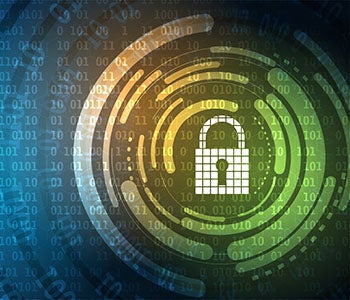Faculty/Staff Technology Quick Links

Assistance
New Faculty Orientation: View the online New Faculty Orientation presentation for information on using TeamDynamix, technology-enhanced classrooms, and various learning technologies
IT Service Desk: 252-328-9866 | 800-340-7081
Walk-in IT Help: Four Pirate Techs locations to serve you | Locations and hours
Classroom Technology Assistance: One stop for classroom resources
Technology Self Help: Submit a service request or search our IT Knowledge Base.
Logins: System and tool logins in one convenient location
Accounts and Access
Set up your new ECU account or update/reset/unlock your password through the PirateID Self Service portal. Note: The password for ECU-managed Mac systems is changed locally.
Microsoft 365 account. Includes ECU email, five Office suite downloads, OneDrive cloud storage, the Teams collaboration tool and other productivity apps. Microsoft 365 login: pirate365.ecu.edu.
Two-Factor Account Authentication. The identity verification process for ECU resources and platforms. You are prompted to set this up the first time you log in to your ECU email.
Note! Your ECU ID is a numerical identifier different from your PirateID. The ECU ID identifies you in HR systems and begins with a “B.” Find your ECU ID number in PiratePort.

Network and Wireless
Onboard your personal laptop or other device to ECU’s primary campus network, eduroam (ECU-managed systems are already set up with eduroam). See the Network and Wireless IT knowledge base for your device instructions.
Teleworking? See these tips for working with your home network.
Virtual Private Network. Many of ECU’s tools now require a VPN connection. Visit the VPN support page to learn more. VPN login: remoteaccess.ecu.edu/
Communication, Conferencing and Collaboration

ECU email is managed through your Microsoft 365 account (web mail), Outlook desktop app or mobile Outlook app. Learn more about your email account through this Email Features Overview. Two-factor authentication is set up the first time you log in to email. Email login: mymail.ecu.edu.
Related: Email Encryption, Spam Management, Phishing, Sensitive Data Guidelines
Announce Listserv email. Stay informed of the latest ECU events, announcements and news by joining the Announce listserv (entire campus) and specific Health Sciences lists.
Cisco Webex conferencing. These Webex tutorials help you get started. Need help? Submit the Webex Conferencing Support request. Also see the conferencing tools page to choose the best conferencing option for Canvas integration, training, live streaming and more.
Microsoft Teams. The Teams app provides a chat-centered work space to bring project teams, project files and collaborative tools into a single interface for instant and organized access. See this Teams Overview. Download the desktop app through Microsoft and the mobile version from your app store.
Voice services and campus telephones. Visit the IT knowledge base for instructions on using your office telephone and voicemail. Teleworkers can add their office telephone number to the Cisco Webex Meetings app.
Software & Storage
Software and Apps
- See the software page for the list of supported software with links to request forms and resources.
- Microsoft Office download. Download Microsoft Office suite to five computers through pirate365.ecu.edu.
- ECU Mobile App. Stay connected to ECU from on or off campus using the free ECU mobile app. Download through mobile app store.Free; some areas require login.
- Statistical software. Mathematica, SAS, SPSS and more available to faculty, staff and students. Two survey tools include Qualtrics and REDCap. See the statistical software IT Knowledge Base category for specifics.

File Storage
ECU offers two storage options:
- OneDrive Cloud Storage (recommended). 5TB capacity and the only approved cloud storage solution for ECU. Sync files with your computer or save hard drive space and keep all work in OneDrive (Files on Demand). Create and edit Word, Excel, PowerPoint and OneNote documents within OneDrive using the web apps. OneDrive is approved for all file types, including sensitive information like HIPAA and FERPA (don’t sync sensitive files!). Recommended for individual user work files (5TB), departments and groups (1TB). See the OneDrive service page for more details.
- Piratedrive. Network-attached storage (NAS). No sync or automatic backup option. Approved for all file types, including sensitive information. Recommended for research groups and department shared files. Mapped as the “U” drive on your computer when on campus.
Visit the storage knowledge base for details on each option and step-by-step instructions for setup. To help determine the best data management plan for you, see the Create a Data Management Plan article.

Teaching and Learning
Canvas Learning Management System. Canvas is ECU’s learning management system. Visit the Canvas & Integrated Tools category for a list of Canvas-integrated services.
Request a course technology or accessibility (or both) consultation for assistance with instructional materials, Microsoft Office files, web pages and announcements.
Teaching tools for collaboration, projects, test security, lecture capture and more.
Security Guidelines and IT Policies
NEW! IT Compliance Guide. This guide is an all-in-one resource page to IT policies and the appropriate “how-to” from our online content to aid faculty and staff in their research, academic and administrative work.
See these Best Practices for using Artificial Intelligence Tools at ECU.
See the Security Awareness page for video links, tips and other resources to keep your data and account private and secure.
Do not print or store sensitive data on your personal or ECU computer! See this list of appropriate storage and transmission resources for sensitive data from the ECU Data Governance committee.
Report a phishing email. If you suspect you’ve received a phishing email, report it!
Report a security concern. It is important that every ECU user report any security concerns, whether benign, accidental or malicious.
University IT policies. The IT section of the University Policy Manual includes the Academic Computer Use and University Student and Employee Computer Use Regulation.

